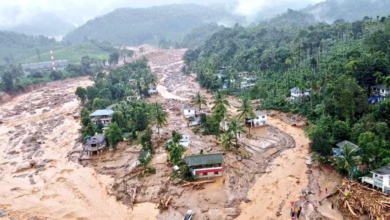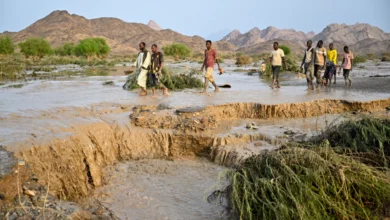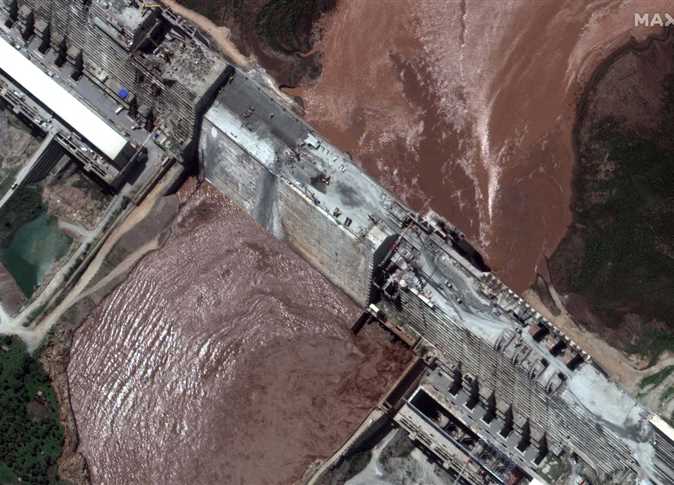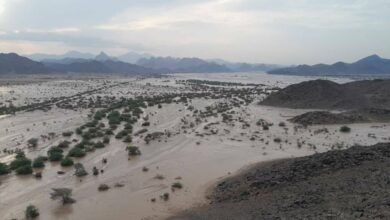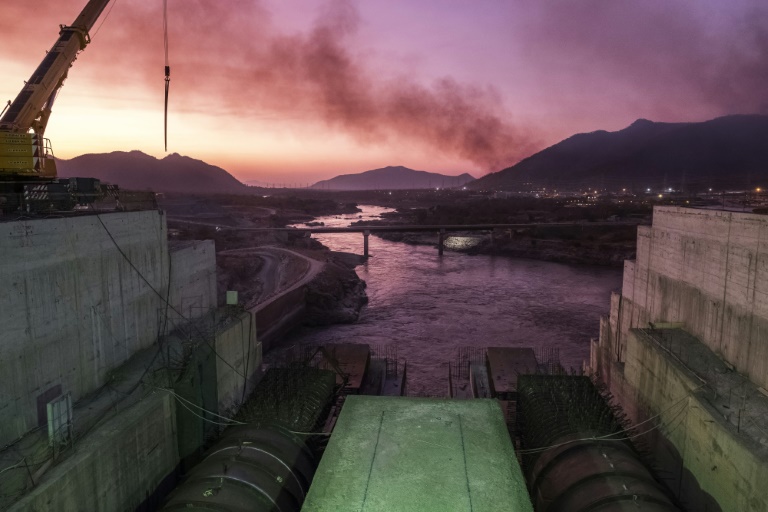
Egyptian Foreign Minister Sameh Shoukry on Sunday said that Ethiopia cannot, under any circumstances, start filling the Grand Ethiopian Renaissance Dam (GERD) until an agreement is reached with the downstream countries.
In a phone-call with Lamis al-Hadidy’s TV show “al-Kahera al-Aan” (Cairo Now) on the al-Hadath channel, Shoukry said that Egypt desires to reach an agreement and see Ethiopia follow the path of negotiations.
The Foreign Minister said Egypt wants to settle the agreement within a political framework, especially in regards to the anticipated impact the GERD will have on downstream countries and the efforts required to preserve Egypt’s interests.
He assured that Egypt, though all its institutions, will find every available track to protect its interests and water rights.
The US Treasury Department announced that Egypt had solely initialed the drafted GERD agreement, as Ethiopia was absent from the last round of negotiations on February 27-28 in Washington.
“Consistent with the principles set out in the declaration of principles, in particular the principles of not causing significant harm to downstream countries, final testing and filling should not take place without an agreement,” the US Treasury Department’s statement reads.
Ethiopia expressed disappointment towards the US Treasury Department’s statement. In a joint statement issued Saturday, Ethiopia’s water and foreign ministers said that the GERD’s constructions will continue as planned alongside filling the dam’s reservoir.
On Sunday, Shoukry said that Ethiopia’s desire to fill the GERD contradicts the rules of international law.
He pointed out that Ethiopia had pledged in the declaration of principles, signed between Egypt, Ethiopia and Sudan in March 2015, not to start filling the dam until an agreement was reached on the operation rules.
Picking out fallacies from the Ethiopian side’s statement Shoukry said the rules of international law and the Declaration of Principles do not allow anyone to take unilateral decisions regarding transboundary rivers.
Ethiopia’s statement claims that the agreement managed by the US Treasury Department is incomplete, Shoukry said, even after Ethiopia adopted many of the articles presented during previous rounds of negotiations.
The last stage of negotiations, which Ethiopia did not participate in, was for adjusting simple matters while the technical rules negotiated over the past four months saw approval from the Ethiopian side, he said.
US President Donald Trump had invited Egypt, Sudan and Ethiopia to start negotiations in Washington in November over the GERD, following years of unsuccessful negotiations between the three countries.
Egypt has repeatedly blamed the Ethiopian side for the failure to achieve progress in the negotiations.
Ethiopia began constructing the GERD in 2011, costing US$4.7 billion in total to build. Ethiopia plans to fill the reservoir with water to power what is expected to become the largest hydroelectric dam in Africa.
Egypt however has expressed concern over the dam’s construction, arguing that it will reduce its legitimate share of Nile river water access and threaten its water security.
Edited translation from Al-Masry Al-Youm

